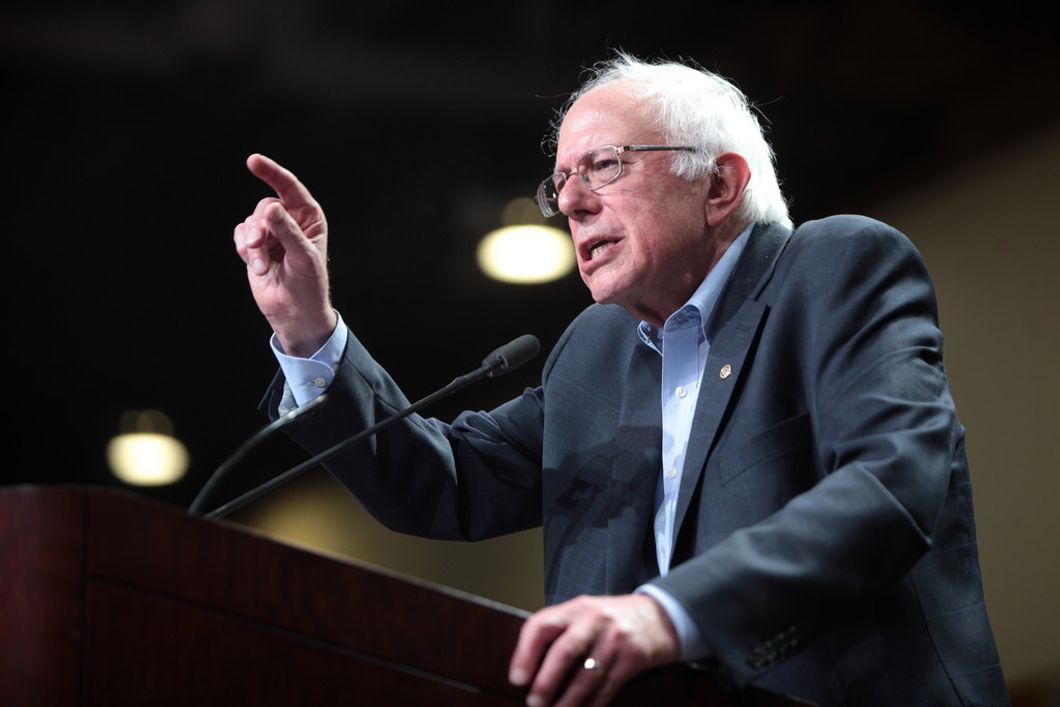This morning, February 19, 2019, Brooklyn-born Bernie Sanders announced he is running for president once again.
Unlike his run in 2016, though, Sanders now joins a crowded field of progressive candidates, one of which is Senator Elizabeth Warren of Massachusetts.
In Sanders's own words, this campaign is "about taking on the powerful special interests that dominate our economic and political life". Sanders went on to say that this is a "pivotal and dangerous moment in American history," and "We are running against a President who is a pathological liar, a fraud, a racist, a sexist, a xenophobe and someone who is undermining American democracy as he leads us in an authoritarian direction".
In his interview with CBS, Sanders explained that it is "absolutely imperative that Donald Trump be defeated", and described candidates whom he is running alongside as his "friends".
Regarding policy issues, his focus remains the same as in previous years, planning to focus largely on women's reproductive rights, lower prices for prescription drugs, and criminal justice reform.
Sanders is also widely recognized because of his goal of universal healthcare. His Medicare-for-all bill that was drafted in 2017 outlines the establishment of a "national health insurance program to provide comprehensive protection against the costs of health-care and health-related services". According to estimates, however, such a plan would increase federal spending by $2.5 trillion a year.
When it comes to education, Sanders plans to make preschool for all 4-year-olds free, aiming to fund this plan through tax increases on the wealthy as well as Wall Street transactions.
More widely acknowledged is his "College For All Act", which would provide $47 billion a year to states in order to eliminate undergraduate tuition and fees at public colleges and universities. Additionally, the act would cut student loan interest rates nearly in half for undergrads.
In terms of social issues, Sanders is pro-choice when it comes to abortion rights and opposes policies which discriminate on the basis of sexual orientation and gender identity, such as Trump's push to ban transgender people from the military.
The New York Times discusses the idea that the political field of the 2020 run might leave Sanders a "victim of his own success", in that the multitude of Democratic candidates are embracing policies which Sanders championed in the last race.
"Ironically, Bernie's agenda for working families will be the Democratic Party's message in 2020, but he may not be the one leading the parade," said talk show host Bill Press.
Moreover, victories by women, minorities, and first-time candidates in the 2018 midterm elections suggest that "fresh energy" is preferred by Democrats, which potentially poses a challenge for Sanders.
Conversely, though, Sanders is also starting off with certain advantages, such as a "massive lead among low-dollar donors that is roughly equivalent to the donor base of all the other Democratic hopefuls combined".
Donald Trump responded to Sanders's announcement by saying, "First of all I think he missed his time, but... I like Bernie. He sort of would agree on trade... the problem is he doesn't know what to do about it. But I wish Bernie well."
By and large, Sanders is another strong candidate, and it will be interesting to see if he can generate the same energy and support now that he did in 2016.

















